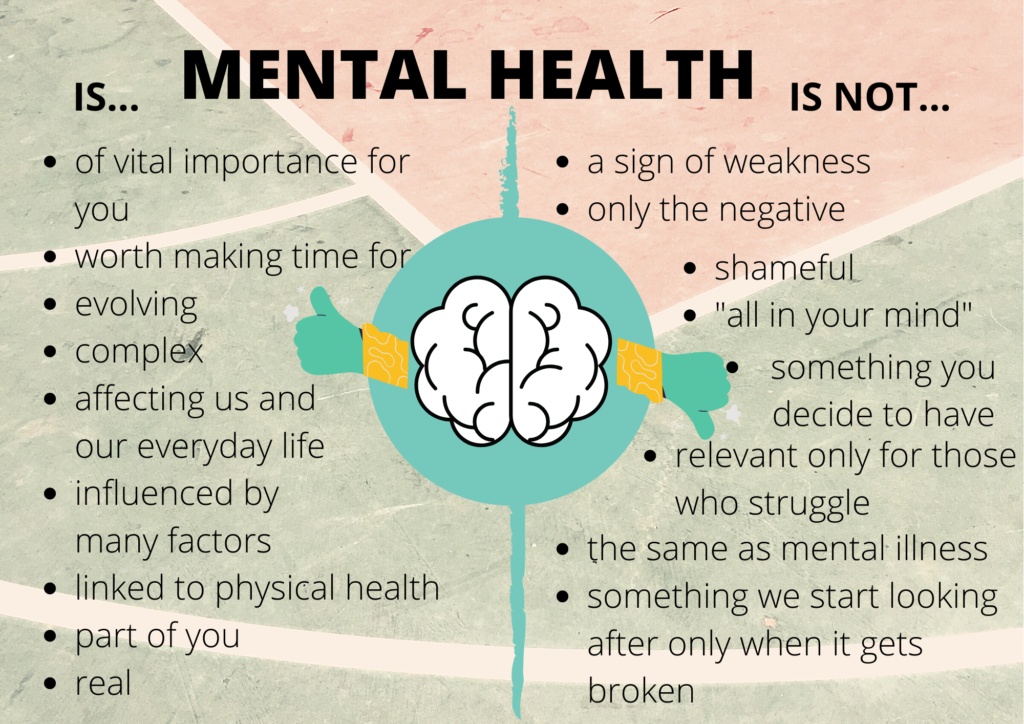Mental health is a crucial aspect of our overall well-being, influencing how we think, feel, and act. It encompasses our emotional, psychological, and social well-being, affecting our daily lives and relationships. Understanding the importance of mental health is essential, as it plays a significant role in our ability to cope with stress, relate to others, and make choices. In this article, we will delve into the various dimensions of mental health, highlighting its significance in our lives and the need for awareness and support.
As we explore the importance of mental health, you will discover the various factors that contribute to mental well-being, including lifestyle choices, social connections, and environmental influences. We will also discuss common mental health disorders, their symptoms, and the stigma surrounding them. By shedding light on these topics, we aim to foster a deeper understanding of mental health and encourage open conversations about it.
Furthermore, this article will provide practical strategies for improving mental health, such as mindfulness practices, physical activity, and the importance of seeking professional help when needed. By the end of this journey, you will be equipped with valuable insights and tools to enhance your mental well-being and support those around you. Join us as we uncover the vital role mental health plays in leading a fulfilling and balanced life.
Understanding Mental Health
Mental health encompasses our emotional, psychological, and social well-being. It affects how we think, feel, and act in our daily lives. Understanding mental health is crucial as it influences our ability to handle stress, relate to others, and make choices. Mental health is not merely the absence of mental illness; it is a state of well-being where individuals can realize their potential, cope with the normal stresses of life, work productively, and contribute to their communities.
Awareness of mental health issues has grown significantly in recent years, yet stigma still surrounds many mental health conditions. This stigma can prevent individuals from seeking help, leading to a cycle of suffering that can affect their overall quality of life. By fostering a better understanding of mental health, we can create a more supportive environment that encourages individuals to seek the help they need.
The Impact of Mental Health on Physical Health
The connection between mental and physical health is profound. Poor mental health can lead to a range of physical health issues, including heart disease, obesity, and diabetes. Stress, anxiety, and depression can manifest physically, leading to symptoms such as fatigue, headaches, and digestive problems. Conversely, individuals with chronic physical health conditions are at a higher risk of developing mental health issues.
Recognizing this interplay is essential for holistic health care. Integrating mental health care into primary health care can improve outcomes for patients. For instance, a patient with diabetes may benefit from counseling to manage the emotional aspects of their condition, which can, in turn, improve their physical health management. This comprehensive approach emphasizes the importance of treating the whole person rather than just the symptoms of a specific condition.
Mental Health in the Workplace
Mental health in the workplace is a critical issue that affects productivity, employee satisfaction, and overall organizational success. A supportive work environment that prioritizes mental well-being can lead to increased employee engagement and reduced absenteeism. Employers who recognize the importance of mental health can implement programs that promote work-life balance, stress management, and mental health resources.
Moreover, creating a culture of openness around mental health can help reduce stigma and encourage employees to seek help when needed. This can include training for managers to recognize signs of mental distress and providing access to mental health professionals. By investing in mental health initiatives, companies not only support their employees but also enhance their bottom line through improved performance and reduced turnover.
Coping Strategies for Mental Health
Developing effective coping strategies is essential for maintaining mental health. Techniques such as mindfulness, exercise, and social support can significantly improve emotional resilience. Mindfulness practices, such as meditation and deep-breathing exercises, help individuals stay grounded and reduce anxiety. Regular physical activity is also linked to improved mood and cognitive function, making it a vital component of mental health care.
Additionally, building a strong support network can provide individuals with the emotional resources they need to navigate life’s challenges. Whether through friends, family, or support groups, having people to talk to can alleviate feelings of isolation and promote a sense of belonging. By incorporating these coping strategies into daily life, individuals can enhance their mental well-being and better manage stressors.
The Role of Professional Help in Mental Health
Seeking professional help is a crucial step for individuals struggling with mental health issues. Mental health professionals, such as psychologists, psychiatrists, and counselors, are trained to provide support and treatment tailored to individual needs. Therapy can offer a safe space to explore feelings, develop coping strategies, and work through challenges.
Moreover, medication may be necessary for some individuals to manage symptoms effectively. It is essential to understand that seeking help is a sign of strength, not weakness. Early intervention can lead to better outcomes and a quicker return to a healthy state of mind. By prioritizing mental health and utilizing professional resources, individuals can take significant steps toward recovery and well-being.
Mental health is a crucial aspect of overall well-being, affecting how we think, feel, and act. It also influences how we handle stress, relate to others, and make choices. Understanding the importance of mental health can lead to better quality of life and improved physical health.
| Aspect | Description |
|---|---|
| Definition | Mental health encompasses emotional, psychological, and social well-being. |
| Impact on Daily Life | Affects relationships, work performance, and overall happiness. |
| Common Issues | Anxiety, depression, stress, and other mental disorders. |
| Signs of Poor Mental Health | Changes in mood, withdrawal from social activities, and difficulty concentrating. |
| Importance of Awareness | Promotes understanding and reduces stigma associated with mental health issues. |
| Seeking Help | Encourages individuals to seek professional help when needed. |
| Self-Care Strategies | Includes exercise, healthy eating, mindfulness, and social support. |
| Long-term Benefits | Improved mental health leads to better physical health, productivity, and quality of life. |
This HTML document provides an informative overview of the importance of mental health, structured in a table format for clarity.



